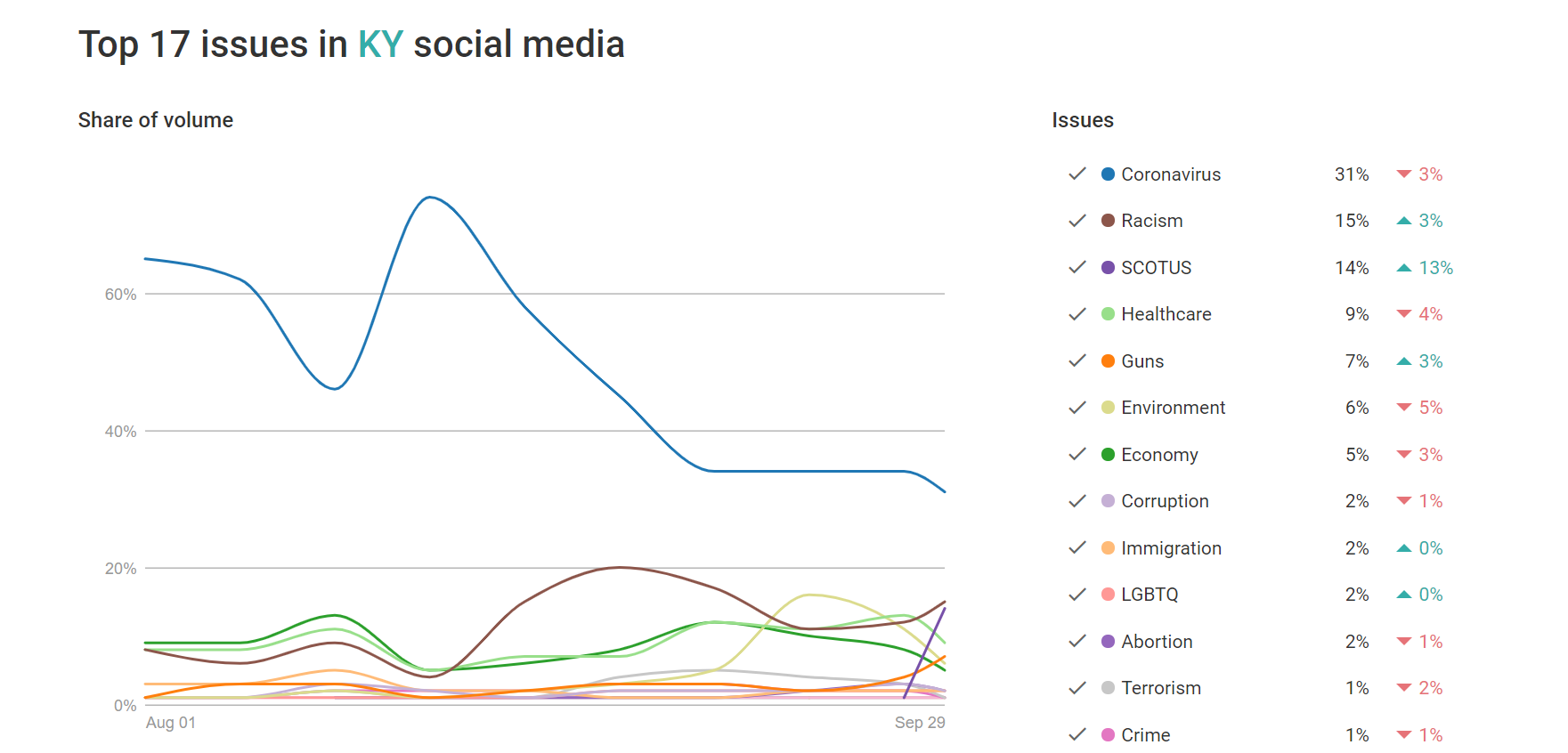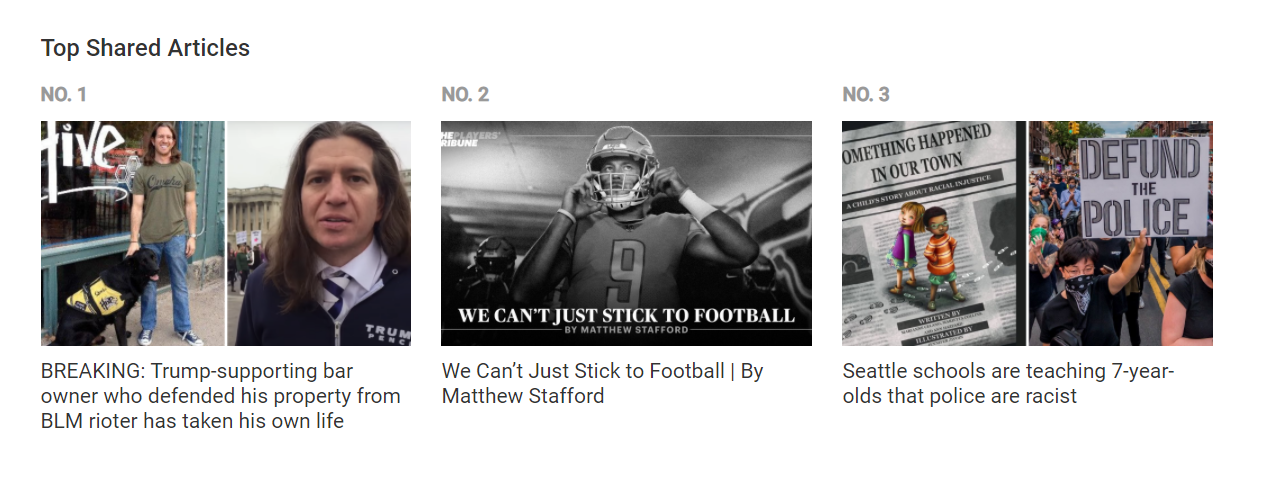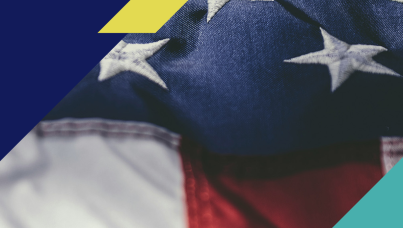Political Atlas spotlight on racism and the 2020 election
While the number one issue this election year is indisputably the coronavirus, which has claimed the lives of more than 200,000 Americans to date, questions of racial justice are another flash point in 2020. Protests have gripped the nation for months following the death of George Floyd at the hands of a Minneapolis police officer.
Ipsos/UVA Center for Politics Political Atlas social media tracking data underscore the prominence of the protests and the fight for racial equality in the presidential race. When it comes to digital conversations about the election, racism has consistently been in the top five trending issues nationally. At times over the summer, racism as an issue was second only in volume to the coronavirus.
And it still remains in the second or third spot in states like Kentucky and Oregon, where recent events keep the focus dialed in on protests and issues of race more broadly. The conversation around racism in Kentucky is surging once again following the controversial grand jury verdict to charge only one officer in connection with the death of Breonna Taylor in Louisville.

However, as Ipsos polling has consistently shown over the summer, Americans do not view the fight for racial equality and the ongoing protests through the same lens.
A recent USA Today/Ipsos survey found that a majority of Republicans (83%) believe that American cities are “under siege” by protesters and counter-protesters. Just 48% of Democrats say the same. The two parties also rank the most pressing issues of the day differently. Broadly speaking, 34% of Americans believe crime, violence, and unrest are the most concerning issue currently, second only behind the coronavirus pandemic. But Republicans do not see things the same way – 42% rank crime, violence and unrest as the top concern, above the coronavirus.
Top shared articles, as tracked by the Political Atlas, underline these parallel views on race and the protests.

The top shared story on September 23, according to the Political Atlas, focuses on the recent suicide of Jacob Gardner, an Omaha bar owner who shot and killed a Black Lives Matter protester during an altercation. Second, a personal narrative from Detroit Lions quarterback Matthew Stafford on how racial injustice has affected his teammates. And third, an article – from the same conservative Canadian website that published the article on Gardner – on how Seattle is purportedly indoctrinating 7-year-old school children that police are inherently racist.
From a national perspective, it is significant that racism continues to be part of the conversation despite multiple other late-breaking issues competing for our attention in an increasingly crowded election cycle. For example, September saw wildfires consume large swathes of the American West, leading to a rise in discussions on the environment; and the passing of Justice Ruth Bader Ginsburg, resulting in a spike in conversations around the Supreme Court.
In short, racism might leveling off in terms of share of voice, but it is leveling off to a point consistent with the perennial election issues of the economy and healthcare. Like so many other matters this election cycle, much hinges on the lens the issues in question are seen through. But as a core issue of the presidential race, the fight for racial justice has proven to have staying power in 2020.



